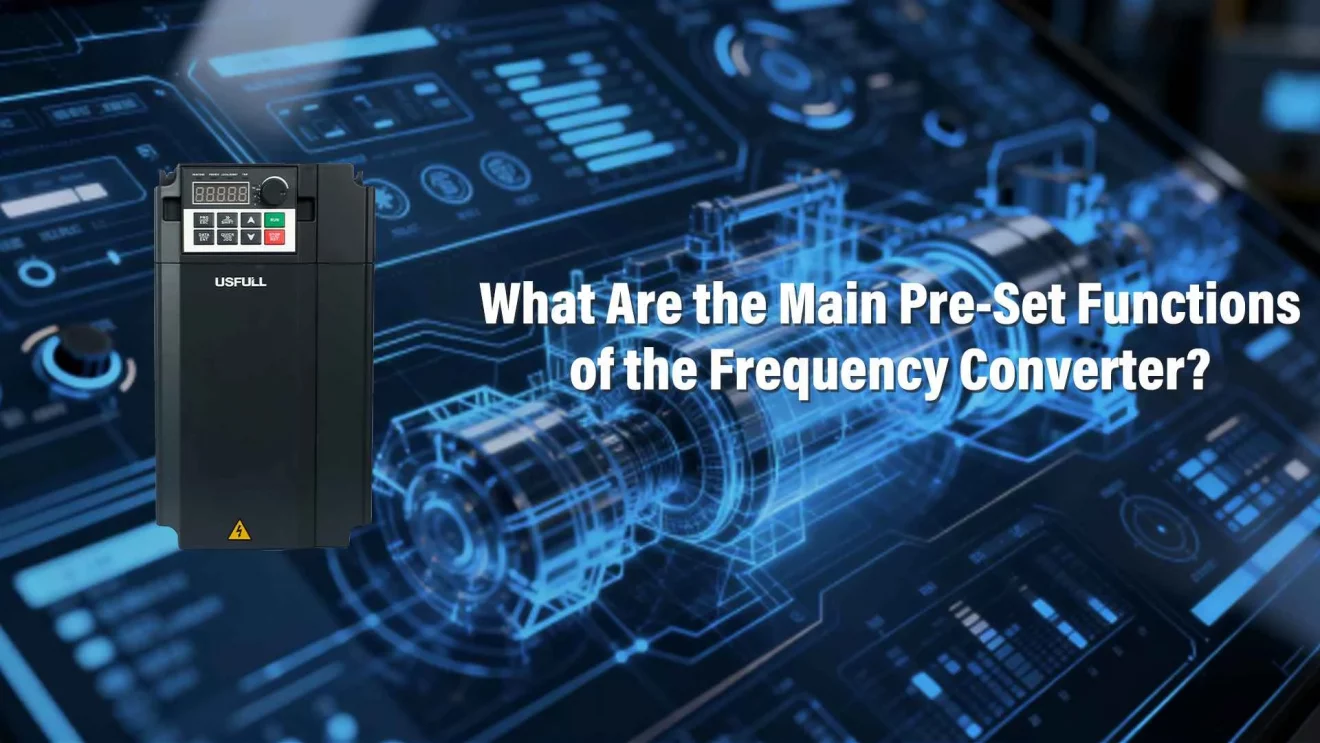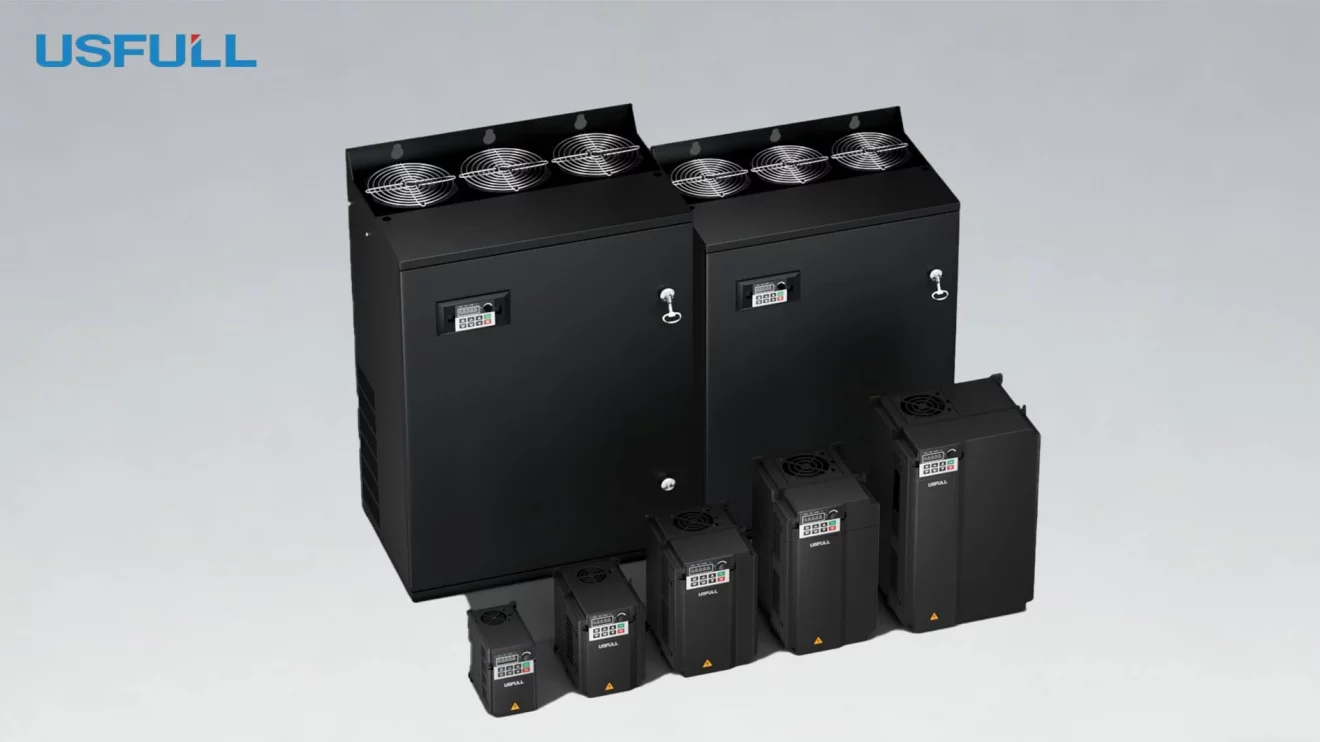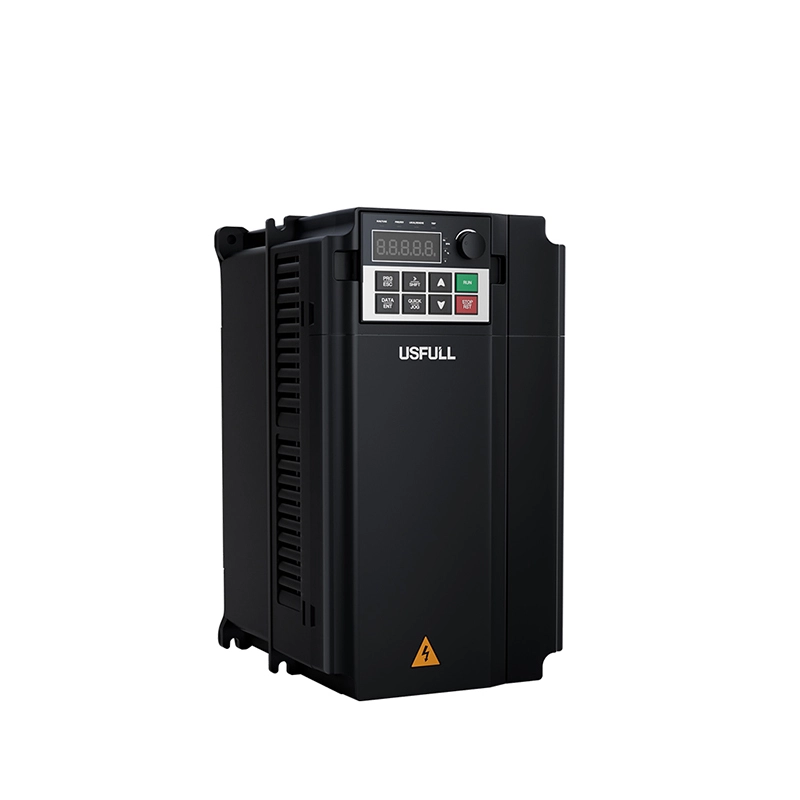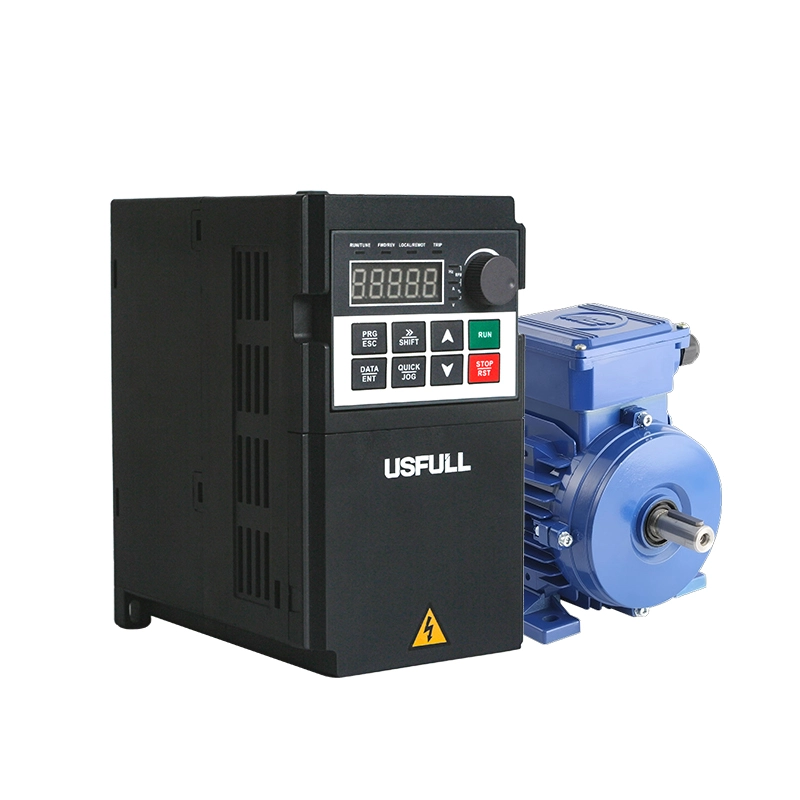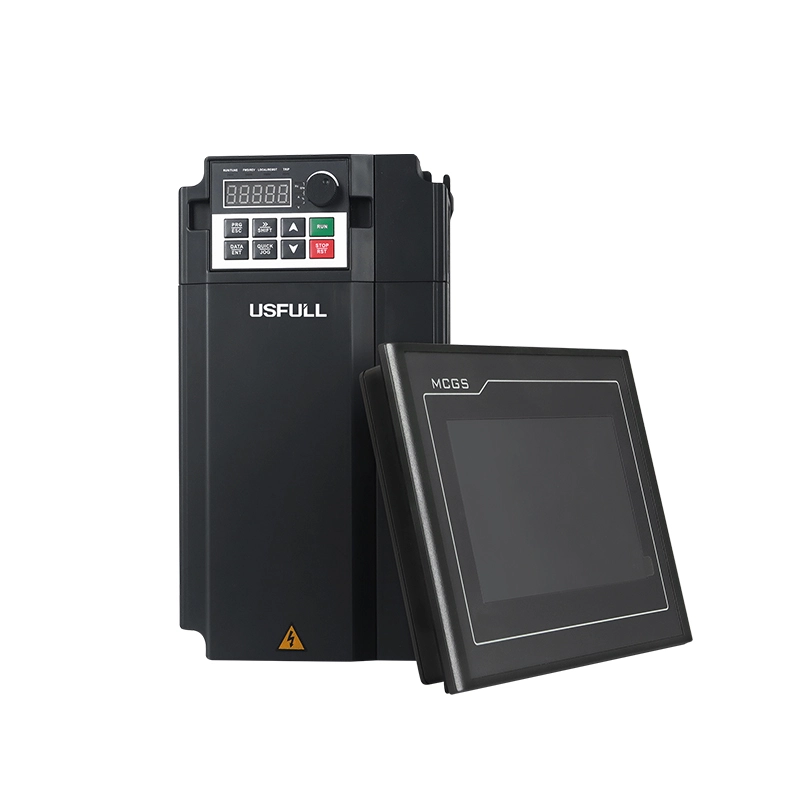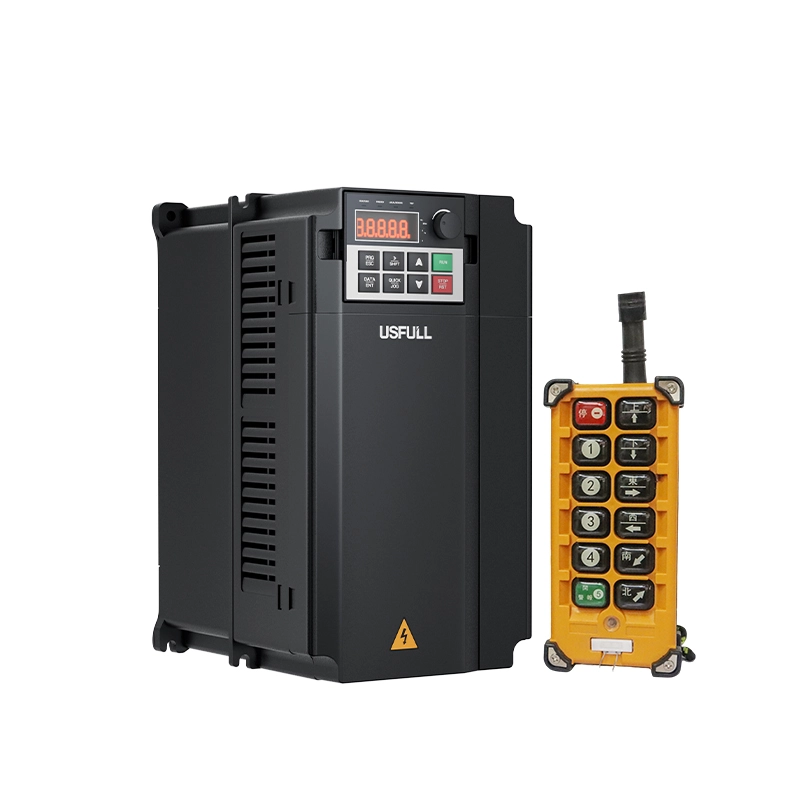Many factories struggle with unstable equipment control. This causes higher energy waste, costly downtime, and safety risks. A well-configured frequency converter solves these problems.
The main pre-set functions of a frequency converter include motor parameter settings, control mode selection, acceleration curves, protection functions, PID control, communication protocols, and industry-specific applications.
Let’s explore these functions in detail.
Motor Parameter Configuration: The Foundation of Precision Control
A frequency inverter, also known as a Variable Frequency Drive (VFD), relies on accurate motor parameter input for reliable performance. Typical parameters include rated power, voltage, current, frequency, and speed. For example, a 4-pole motor typically runs at 1450 rpm when configured correctly. Advanced inverter VFD models support automatic motor tuning, adjusting rotor and stator parameters to maximize efficiency.
By pre-setting motor data, a variable frequency inverter ensures compatibility with different loads, reduces system errors, and improves the precision of speed and torque control. This foundational step is essential for industries that demand both reliability and energy savings.
Control Mode Selection: Matching the Right Application
One of the most important pre-set functions of a Variable Speed Drive (VSD) is control mode selection. Frequency inverters generally offer:
V/F Control for pumps and fans.
Sensorless Vector Control for moderate precision (±0.5%).
Closed-loop Vector Control with encoders for high precision (±0.01%).
For example, a VFD manufacturer in China may supply models with multiple algorithms, from V/F control to Direct Torque Control (DTC). By offering flexibility, a variable frequency drive ensures suitability for HVAC systems, conveyors, compressors, and heavy-duty machinery.
Acceleration and Deceleration Curves: Smooth and Safe Operation
Pre-set acceleration and deceleration curves allow equipment to start and stop smoothly, reducing mechanical stress and energy consumption. Options often include linear ramps, S-curves, and custom profiles.
For water pumping applications, a soft-start function prevents pressure surges in pipelines. In crane systems, special anti-sway algorithms stabilize lifting operations. By fine-tuning acceleration parameters, inverter VFD units protect motors and prolong system life.
Multi-Speed Operation: Flexibility for Complex Workflows
Many VFDs provide multi-speed functionality as a built-in feature. Standard models often support 16 pre-set speeds, while advanced VSDs can store up to 255 speed levels. Each speed point can have its own acceleration or deceleration time, allowing precise adjustment for complex processes.
This is especially useful in textile manufacturing, where fabric tension must be carefully controlled. With the right VFD supplier, businesses can implement tailored speed profiles to improve efficiency and product quality.
Protection Functions: Safety and Reliability First
A key role of any variable frequency drive manufacturer is ensuring safety. Pre-set protection features include:
Overload protection through electronic thermal models.
Overcurrent, overvoltage, and undervoltage protection to handle power fluctuations.
Ground fault and short-circuit protection for safety compliance.
For example, many industrial-grade VFDs allow 200% overload for 0.5 seconds, while heavy-duty inverters can support 300% for 3 seconds. These built-in functions minimize downtime and reduce maintenance costs.
PID Control: Built-in Process Optimization
Modern frequency inverters often integrate PID (Proportional-Integral-Derivative) control as a standard feature. This allows the VFD to regulate process variables such as pressure, flow, or temperature without requiring an external controller.
In water treatment facilities, a variable frequency inverter with PID control can maintain constant pressure within ±0.2% accuracy. This enhances process stability, reduces energy consumption, and lowers equipment wear. For industrial buyers, it means fewer devices to manage and simpler installation.
Energy-Saving Functions: Reducing Operational Costs
One of the top advantages of a Variable Speed Drive is energy efficiency. Pre-set energy-saving modes include Automatic Voltage Regulation (AVR) and adaptive algorithms that adjust output to match real-time load demand.
For example, reducing motor voltage during partial load can cut energy consumption by 10–15%. Over a year, this translates to thousands of dollars in savings for a single machine. Choosing a reliable VFD manufacturer ensures access to the latest energy-saving features.
Communication and Expansion: Industry 4.0 Integration
As factories move toward smart manufacturing, communication capabilities are essential. Many inverter VFD units come with built-in Modbus RTU, while high-end models support PROFINET, EtherCAT, and CANopen.
This allows seamless integration into SCADA, PLC, and cloud-based monitoring systems. Additionally, some VFD suppliers include basic programmable logic functions, enabling simple automation without a separate PLC. These features make frequency converters an important link in Industry 4.0 ecosystems.
Industry-Specific Functions: Tailored for Applications
A professional VFD manufacturer designs models with special pre-set functions for different industries:
Water pumping: dry-run protection, automatic sleep/wake modes.
Textile: frequency oscillation to prevent yarn overlap.
Elevators: S-curve start, re-leveling features for smooth operation.
These targeted functions reduce engineering time and simplify commissioning. When sourced from an experienced VFD manufacturer in China, companies benefit from both cost-effectiveness and application-specific performance.

